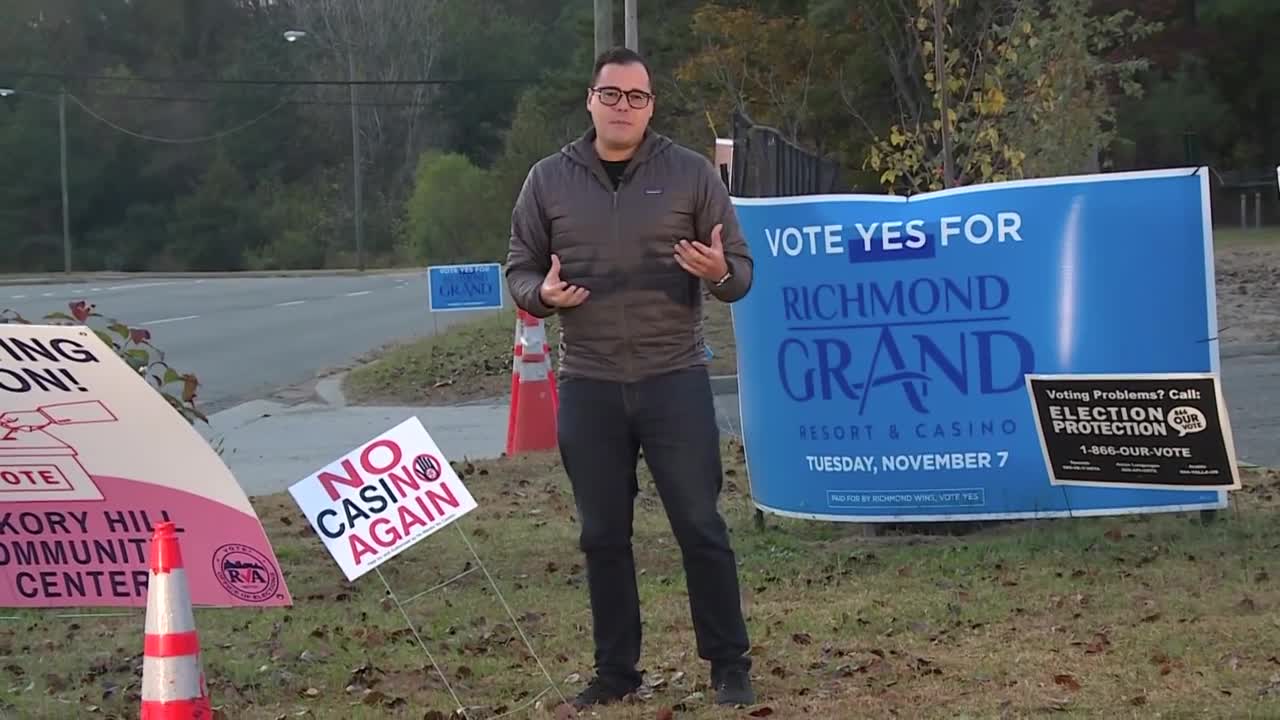Richmond Voters Crush Casino Initiative at the Polls

The political action committee representing the developers of a proposed $562 million South Richmond casino conceded defeat on Tuesday, as voters once again failed to support the plans for the entertainment and gaming complex.
The Richmond Grand Casino and Resort had been expected to create 1,300 permanent jobs, including a 250-room hotel, feature a 55-acre park and generate $30 million in local tax revenue.
On Election Day, the majority of voters, except those in the Eighth and Ninth districts, rejected the proposal. The plans fell short by approximately 14,090 votes on Election Day, even though voters living closest to the proposed site had shown overwhelming support for it.
With all precincts having reported, unofficial results from the state Board of Elections show that 58% of voters cast “no” ballots, while 41% cast “yes” in the referendum.
The voter turnout was 43%. Developers Urban One and Churchill Downs conducted a record-breaking $10 million door-to-door campaign aimed at increasing voter participation.
In a release issued just after 9 PM on Tuesday, the pro-casino political action committee, “Richmond Wins, Vote Yes,” expressed pride in their community-centered campaign to create more opportunities for the city’s residents to move into the middle class.
The project, planned at 2001 Walmsley Blvd. and 4700 Trenton Ave, enjoyed the support of Mayor Levar Stoney, the Richmond NAACP, local and national unions, several local church officials and nearly all City Council members.
Proponents of the project emphasized its potential for job creation, increased tax revenue and economic development for the city, particularly in the economically challenged South Side.
An agreement with the city would have included an initial payment of $25.5 million and an additional $1 million after financing closed.
These funds were slated to support childcare services, with the plan encompassing the construction of two new childcare centers and an annual investment of $19 million in a childcare trust fund.
Mayor Stoney had pointed out that the alternative would involve finding ways to increase taxes or utilize the existing revenue to fund childcare services if the project failed.
In light of the project’s defeat, Stoney pledged to work toward more accessible and affordable childcare, better-paying jobs and an abundance of opportunities for all residents, regardless of their ZIP code.
It’s worth noting that a similar project was rejected by voters two years ago, albeit by a smaller margin.
Polling locations across the city featured greeters in “Richmond Grand” purple shirts welcoming voters, such as at the Hickory Hill Community Center.
Corey Gills, a long-time South Side resident who had voted against the project in the past, changed his stance this time, citing the promise of well-paying jobs with benefits as the reason for his vote.
On the other hand, opposition to the project, primarily led by grassroots community organizations, argued that developers would exploit the predominantly poor and Black surrounding area.
In the first referendum vote, precincts in the Fan, Museum District and West End mostly voted “no.” This year, all but two districts voted against the project.
In mid-June, the City Council voted 8-1 to bring the project back to the ballot and selected Urban One and Churchill Downs Inc. as the developers.
This decision faced legal challenges as opponents contested the no-bid process, which ultimately led to a court ruling that the city did not violate Virginia state codes.
Councilmember Katherine Jordan, who represents the city’s second district and where most of the opposition votes came from, was the only member to vote against the project.
- Other news categories:
- SlotsUp's news





